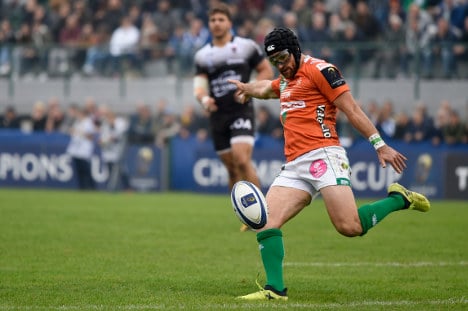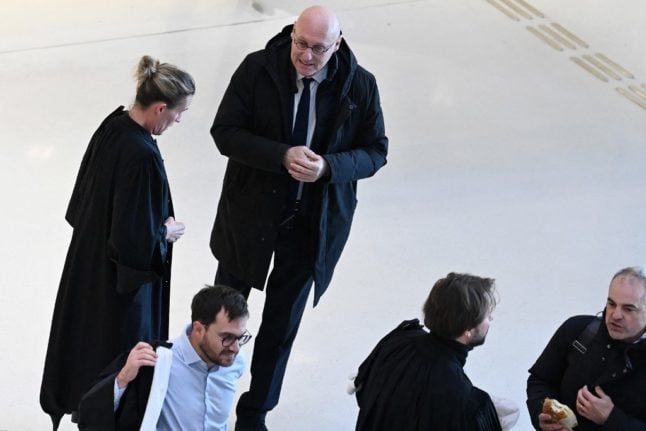The 27-year-old former Leinster fly-half — blinded in one eye when a teammate's stud punctured his eyeball in January 2010 — has been named as a replacement by Conor O'Shea for the opening autumn international in Catania.
McKinley was forced to retire a year after his horrific accident but made a comeback in 2014 and has been playing successfully in Italian club rugby, wearing specially manufactured goggles.
“It's with much pride and honour,” McKinley told AFP of learning he had been called up to represent Italy.
“I was surprised firstly, but it's a huge honour to be picked to go down to Catania to play the first match against Fiji.”
It has been a long road for McKinley who has had to overcome enormous odds and great pain to even play again.
“I was playing a club game in UCD (University College Dublin),” the Dubliner explains of the accident that changed his life.
“I was at the bottom of a ruck, one of the studs of a teammate went into my eyeball. I had an operation that night in the Eye and Ear Hospital in Dublin.
I then went home, sat with a patch and barely moved for a month.”
Over a period of six months, he regained about 50 percent of his vision in his eye and came back to make his Leinster debut in 2011 against Treviso.
Despite lacking full periphery vision, he made six appearances for Leinster but was targetted by two eye-gouging incidents on his other eye.
About 18 months after the accident, he developed a cataract and a detached retina and more excruciatingly painful surgery followed.
'Nothing to lose'
After making the decision to prematurely call time on his career mid-2012, a call came asking if he would fancy coaching in the Italian town of Udine, near the border with Slovenia.
“I felt I had nothing to lose. I was getting frustrated in Dublin with so many memories of playing and knew a change would be the best possible thing,” he said.
At first McKinley and his fiancee Cordelia struggled to adapt to their new life, amid regrets for his old playing days in Dublin.
His older brother Phillip visited and concerned about his mood came up with the idea of finding a student from Ireland's National College Art and Design to help design protective rugby goggles to get him back playing.
The “mixture of ideas” gave rise to the goggles which are manufactured by Italian company Raleri.
Italy were one of the few unions to sign up for a World Rugby trial for protective goggles in 2014.
McKinley was soon playing in the third tier of Italian rugby before a move to Viadana, then to Zebre for Pro12 action as injury cover and finally to Treviso at the start of last season.
“Between retiring and going back on the rugby field it was a three year period. Mentally it was quite draining and difficult but I'm lucky. I have a support network,” said McKinley.
Ironically the IRFU (Irish Rugby Football Union) having not signed up for the trial wouldn't let him play a game in Connacht if he wore the goggles.
“People were calling me the 'Goggle Guy' in the beginning but I'm happy that people are going away from that and calling me Ian,” he said.
“I wear goggles and I'm one of the first players to use them, I just want to be treated as an ordinary player. I'm here to do my best for Italy. “
McKinley represented Ireland at under-20 level but now considers Italy as home.
“We've emersed ourselves in the culture and learned the language. I owe everything to Italy and to represent them is a huge honour.”
By Emmeline Moore



 Please whitelist us to continue reading.
Please whitelist us to continue reading.